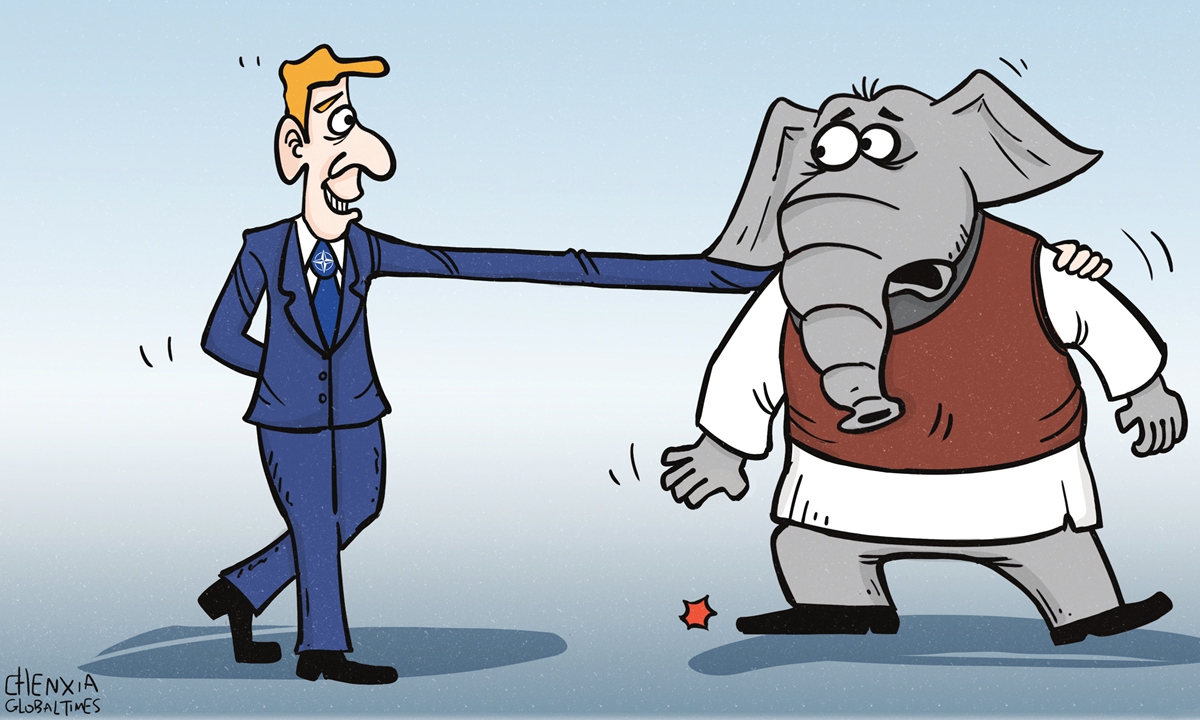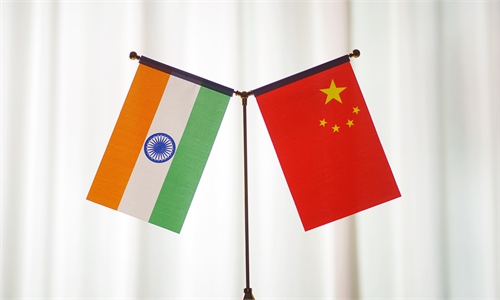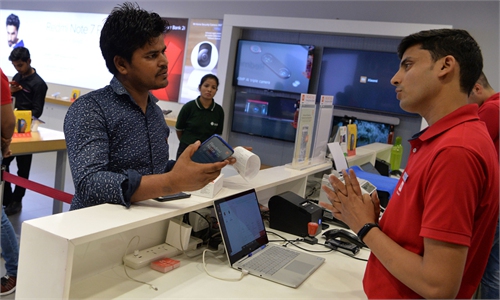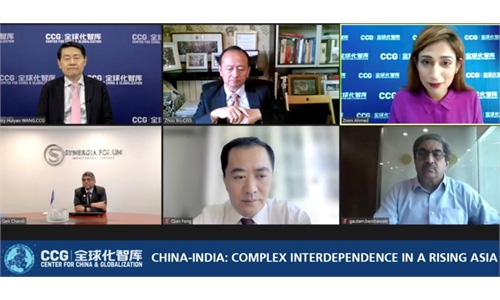
Illustration: Chen Xia/GT
An Indian media outlet Indian Express revealed that India held its first political dialogue with NATO in Brussels on December 12, 2019. The talks "hold significance," according to Indian Express, because NATO has been engaging in bilateral dialogue with both China and Pakistan, which play a role in India's strategic imperatives.Responding to the news on Friday, India's Ministry of External Affairs Spokesperson Arindam Bagchi said that India and NATO are in touch with each other at different levels for quite some time now and it's part of India's contacts with various stakeholders on global issues of mutual interests.
NATO is a transatlantic military bloc, but it is normal that countries outside the region have contacts with it. As for Pakistan, NATO used to carry out operations in Afghanistan at the request of the US, therefore it needs assistance and coordination from Pakistan. It is also normal that NATO engages with major powers like China and India.
What deserves alert, however, is that with the lead of the US, NATO's task has exceeded the traditional sphere of Europe and North Atlantic, while the global expansion of NATO, especially US' intention to create an Asian version of NATO, is advanced with Quad as the main pillar. In this year's NATO summit, Indo-Pacific partners such as Australia, Japan, New Zealand, and South Korea participated for the first time. Meanwhile, US-India defense trade cooperation continues to expand with the Logistics Exchange Memorandum of Agreement, Communications, Compatibility and Security Agreement, and the Industrial Security Agreement. The US and Indian militaries will also hold high-altitude exercises in Auli in the Indian state of Uttarakhand in mid-October. Obviously, the US is mobilizing and integrating its alliances and partnerships in a bid to build a global military alliance system.
What India means of "mutual interests" between India and NATO is nothing but their perceived threat from China. NATO has for the first time singled out China as one of its strategic priorities for the next decade, and India views China as its biggest rival in the Asia-Pacific region and beyond. Meanwhile, if the US and European countries want to enhance their presence in the Asia-Pacific region, cooperation with India is a must step.
Given India's traditional non-alignment diplomacy and its ambitions to become a major power, India is reluctant to be in a subordinate position in any alliances in which the US takes the central role. India may engage in some concrete cooperation with US-led NATO, now politically and in the future militarily, but there is little chance that India joins NATO.
On the one hand, according to NATO principles, an attack against one Ally is considered as an attack against all Allies. Therefore, there is no need for India to be confined to this binding principle or step into conflicts with a country with which it has no direct stakes.
On the other hand, India is an old hand in diplomacy. Cooperation with either the US or NATO is to seek its own interests by taking advantage of them. This is why India does not want to touch on issues that do not directly link to its interests. For instance, India didn't condemn Russia's actions in the Russia-Ukraine conflict or sanction Russia. It also did not join the US, UK and Australia, all of whom are members of Quad, to issue a statement to criticize China's military exercise in response to US House Speaker Nancy Pelosi's trip to the island of Taiwan. It is worth noting that India is not designated as a major non-NATO ally of the US.
From the perspective of global peace and stability, NATO should have been dissolved after the Cold War. Currently, NATO's eastward expansion has led to the Russia-Ukraine conflict. It can be said that wherever this military bloc goes, the region will witness intensified division and confrontation and come into a security dilemma. For regional countries in Asia, they do not want to end up being used as a chess piece by the US to serve its strategic goal of dividing and ruling Asia.
India cannot afford this either.
The author is a senior research fellow with the Academy of Regional and Global Governance at the Beijing Foreign Studies University and president of the Chengdu Institute of World Affairs. opinion@globaltimes.com.cn



